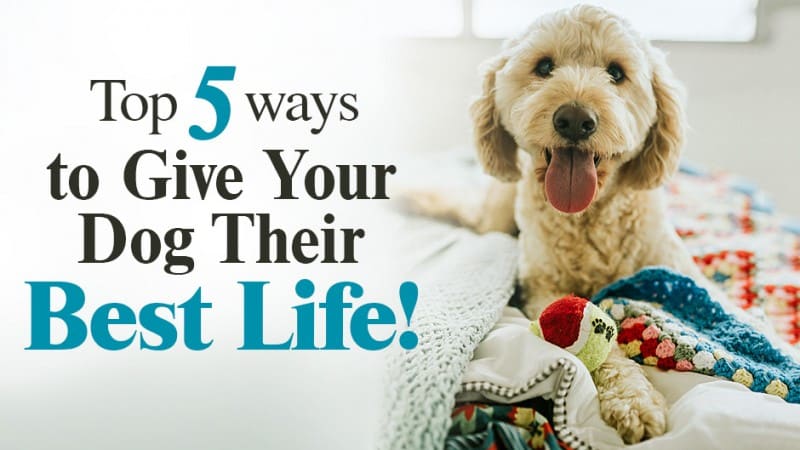Hi, everyone! It’s me, Cooper, here with a very important question: Do you like to go to the dentist?
If you’re like an estimated 9 to 20 percent of the human population, the answer is no—you actually have a fear of going to the dentist (also known as odontophobia or dentophobia). But the costs of not getting regular dental exams can be detrimental to your health, resulting in cavities, gum disease, and even problems with other organs, like your heart.
Guess what? The same is true for pets: Our dental health is extremely important to our overall health. Bacteria that get trapped underneath our gums can travel to other organs in our body, resulting in dangerous infections. Problems with our dental health can also be very painful, causing us to eat and drink less or even lose some (or all) of our teeth.
The first step to keeping your pet’s teeth and gums healthy is to brush his teeth often—preferably daily. Our clinic’s staff can help you choose the proper toothbrush and toothpaste to use. (Note: Never use human toothpaste on animals!)
The second step is scheduling regular dental cleanings for your pet. Only a professionally trained veterinarian can thoroughly clean your pet’s teeth by removing plaque and tartar from beneath the gum line—a process that requires anesthesia. During the exam, the vet will also examine your pet’s tongue, polish his teeth, and provide an antiseptic rinse to ensure a squeaky clean, healthy mouth.
Why is anesthesia required? Well, remember how lots of you humans don’t like to go to the dentist? It’s even worse for us. Most pets don’t have the luxury of being clinic pets (like me), so they don’t understand the importance of getting their teeth cleaned. People can sit back and open and close their mouths when the dentist tells them to; pets, on the other hand, get scared and may bite the veterinarian and other staff members. A squirming animal also makes it difficult and potentially unsafe for the vet to properly perform the exam. I mean, you don’t wiggle around when your dentist has pointy tools in your mouth, do you? Anesthesia takes away your pet’s fear, pain and discomfort so the dental cleaning is successful.
If you still have questions about what to expect during your pet’s dental examination, feel free to contact a member of our clinic team. Now’s as good a time as any to schedule an appointment if your furry friend is due for a cleaning.
Until next time, keep smiling—and that goes for your pet, too!


